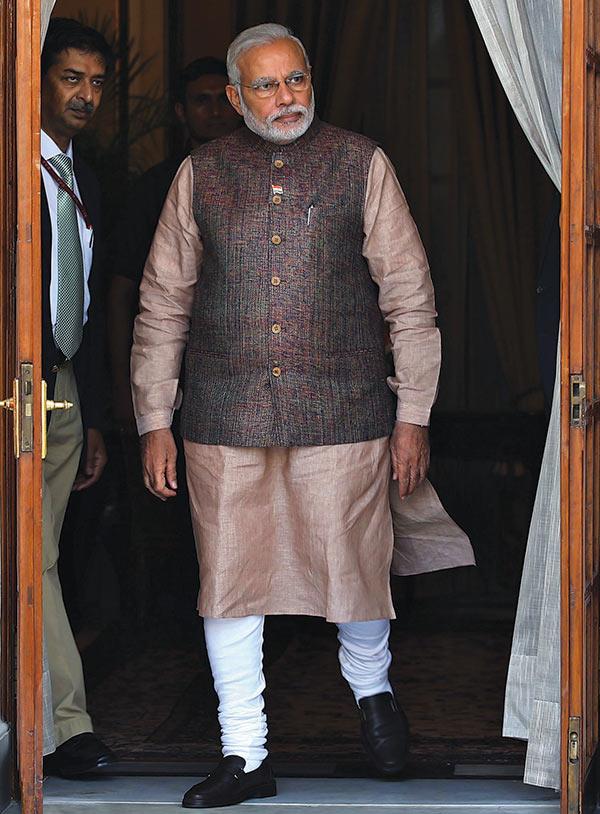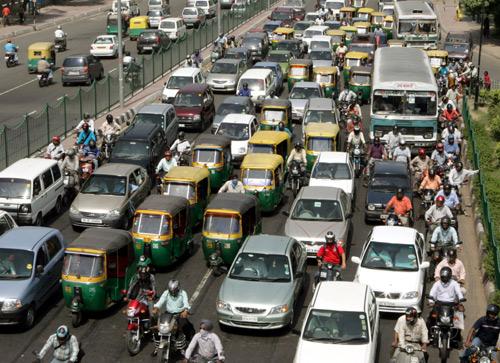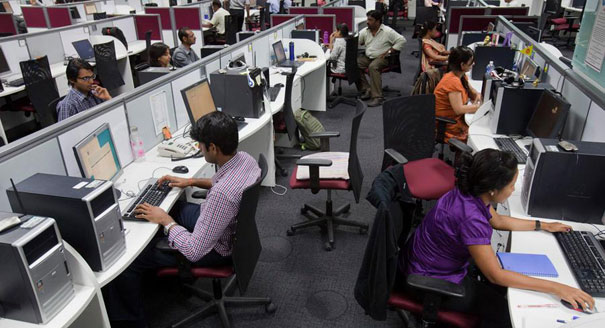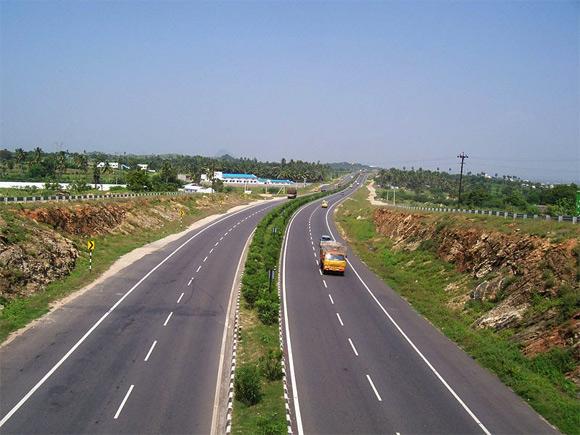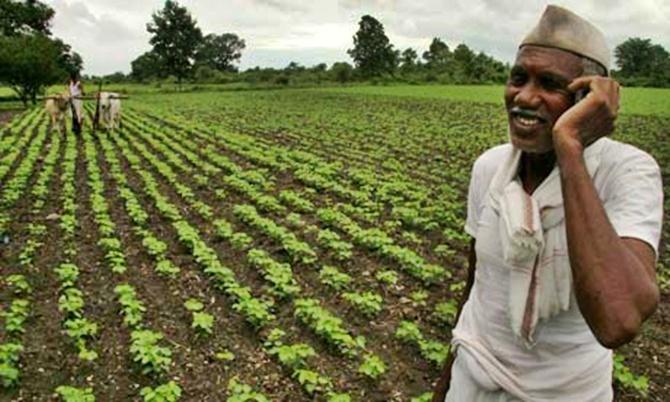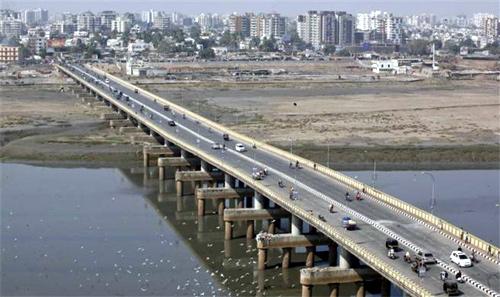 | « Back to article | Print this article |
A peek into Modi's economic vision
Narendra Modi details sectors and issues where he wants government policy to focus, a month before general Budget.
Prime Minister Narendra Modi gave a sneak preview of his economic vision on Sunday, a day ahead of the Presidential address to Parliament and a month before his government presents the general Budget.
Click NEXT to read more...
A peek into Modi's economic vision
His speech, after a book launch at 7, Race Course Road, his official residence, underscored the importance of an urban and rural growth agenda, revival of the ‘green revolution’ in agriculture, a focus on renewable energy, exploiting the ‘demographic dividend’, making 100 ‘smart’ cities and quick decision-making.
Skill, scale and speed are what India needs to compete with China, Modi said after releasing a book titled Getting India back on track – an action agenda for reform, edited by Bibek Debroy, Ashley Tellis and Reece Trevor.
Click NEXT to read more...
A peek into Modi's economic vision
Referring to our ‘demographic dividend’, with 65 per cent below the age of 35, the PM said skill development was a priority area.
For example, can India become an exporter of good teachers, who would capture the imagination of an entire generation globally, he asked.
While stating that the input of intellectual think tanks and universities should be substantially enhanced for better policy frameworks, the PM stressed that attention on agriculture should be increased. He cited the colours of the national flag, to illustrate his agenda of growth.
Starting with green, he said, “We need to bring about a second green revolution — focusing on increased agro-productivity, value addition, agro technology, and decentralisation of warehousing.”
Then, he said, a ‘white revolution’ must focus on raising productivity in milk output, and developing a support system for ensuring cattle health.
Click NEXT to read more...
A peek into Modi's economic vision
While on a saffron revolution, he looked at the audience and said many people in this room must be getting alert, thinking on what he was about to say.
Modi then smiled and said saffron represented energy. India should focus on energy sources such as solar and other renewable forms, to meet the growing demand.
Coming to the Ashok Chakra’s blue, Modi spoke about the need for a ‘blue revolution’, meaning a revival of the fishery sector.
On infrastructure, a sector of prominence in the Modi government, the PM said the focus needed to shift from highways to “i-ways” and optical fibre networks.
While cities in the past were built on river banks and now along highways, in they future they will be built on the availability of optical fibre networks and next-generation infrastructure.
In which context, he said, urbanisation was an opportunity. “If we have to generate employment and change for the better, we plan to build 100 smart cities.”
Click NEXT to read more...
A peek into Modi's economic vision
Other issues he touched were water conservation, micro irrigation, and the need to combat the challenge of global warming and climate change.
Modinomics
Here are the key areas that Narendra Modi spoke on during the launch of a book, Getting India Back on track – an action agenda for reform, that reflect the prime minister’s economic vision
*India needs to compete with China on grounds of skill, scale and speed
* Skill development needs to be a priority area
* Input of intellectual think tanks and universities should be substantially enhanced for better policy frameworks
* Need of a second green revolution — focusing on increased agro-productivity, value addition, agro technology, and decentralisation of warehousing
* The white revolution must focus on increasing milk productivity, and developing a support system for ensuring cattle health
A peek into Modi's economic vision
These are few more policy reforms that reflect the primie minister’s economic vision.
* The saffron revolution should look at utilisation of energy sources such as solar and other renewable forms to meet the growing demand
* In terms of infrastructure, there is a need to shift from highways to ‘i-ways’, and optical fibre networks
* Policy-making should incorporate inputs from universities and think tanks
*‘Per drop, more crop’ for water conservation
* A civilisation that treated rivers as mothers did not need to learn about environment protection from a western mindset
